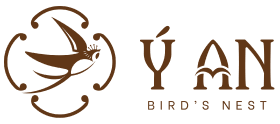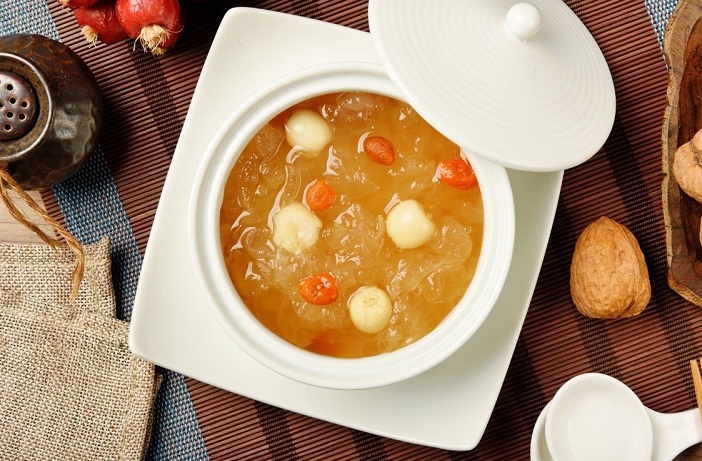News, PRODUCT CONSULTATION
Effects of Bird’s Nest on Post-Surgery Patients
### The Effects of Bird’s Nest on Post-Surgery Patients
**Introduction**
Bird’s nest, a delicacy highly regarded in traditional Chinese medicine, is known for its extensive health benefits. Composed primarily of the hardened saliva of swiftlets, bird’s nest is rich in essential nutrients that contribute to recovery and overall well-being. In recent years, it has gained popularity as a natural supplement to support post-surgery healing due to its high content of proteins, glycoproteins, amino acids, and minerals.
Post-surgery recovery is a critical phase where patients require enhanced nutrition to promote tissue repair, strengthen the immune system, and combat inflammation. This article explores how bird’s nest can play a crucial role in aiding post-operative recovery, backed by both traditional practices and modern scientific findings.
—
### 1. Nutritional Composition of Bird’s Nest
Bird’s nest is highly valued for its nutritional content, which includes:
– **Proteins**: Bird’s nest is composed of approximately 50-60% protein, primarily in the form of glycoproteins, which are known for their high bioavailability.
– **Amino Acids**: It contains essential amino acids like threonine, valine, and arginine, which are vital for tissue repair, muscle growth, and immune function.
– **Minerals**: Rich in calcium, potassium, iron, and magnesium, bird’s nest helps replenish the body’s mineral stores, which can be depleted after surgery.
– **Sialic Acid**: This unique compound promotes cell regeneration, enhances brain function, and supports the immune system.
– **Epidermal Growth Factor (EGF)**: Bird’s nest is believed to contain EGF-like substances, which may accelerate wound healing and tissue regeneration.
—
### 2. Bird’s Nest and Wound Healing
**a. Accelerates Tissue Repair**
One of the primary challenges after surgery is the need for effective tissue repair. Proteins and amino acids found in bird’s nest, such as proline and glycine, play a significant role in collagen synthesis, which is crucial for wound healing. Collagen is a vital protein that helps rebuild damaged tissues, promote elasticity, and accelerate the healing of surgical incisions.
**b. Reduces Inflammation**
Bird’s nest has natural anti-inflammatory properties due to its sialic acid content. This helps reduce post-operative swelling, pain, and inflammation, which are common after surgeries. Reduced inflammation not only speeds up recovery but also minimizes the risk of complications.
**c. Prevents Scarring**
The EGF-like substances in bird’s nest may help prevent scarring by promoting the growth of new skin cells and encouraging faster skin regeneration. This is particularly beneficial for patients undergoing cosmetic or dermatological surgeries.
—
### 3. Boosting the Immune System
**a. Enhances Immunity**
Post-surgery patients are at a higher risk of infections due to weakened immunity. Bird’s nest contains bioactive compounds that stimulate the production of immune cells, such as macrophages and lymphocytes, which play a vital role in defending the body against pathogens.
**b. Promotes Gut Health**
A healthy gut is essential for a robust immune system. Bird’s nest helps restore gut health by providing glycoproteins that support the growth of beneficial gut bacteria. This, in turn, improves nutrient absorption, reduces inflammation, and enhances overall immunity, thereby helping patients recover faster.
**c. Antioxidant Properties**
Bird’s nest contains antioxidants that protect cells from oxidative stress, which can be elevated after surgery due to increased metabolic activity. By neutralizing free radicals, antioxidants in bird’s nest can reduce the risk of post-operative complications and promote faster recovery.
—
### 4. Enhancing Energy and Reducing Fatigue
**a. Provides Sustained Energy**
Surgery takes a significant toll on the body, leaving patients feeling fatigued and weak. Bird’s nest is a natural energy booster due to its rich content of proteins and essential nutrients, which help restore energy levels. The glycoproteins in bird’s nest provide a steady source of energy without spiking blood sugar levels, making it an ideal supplement for patients with diabetes or those recovering from major surgeries.
**b. Improves Appetite**
Post-surgical patients often experience a loss of appetite, which can hinder recovery. Bird’s nest is easy to digest and can be consumed in various forms, such as soups or porridges, making it a suitable option for patients with limited appetite. Its mild flavor and soft texture are also gentle on the digestive system.
—
### 5. Benefits for Specific Types of Surgeries
**a. Orthopedic Surgeries**
Bird’s nest is particularly beneficial for patients recovering from orthopedic surgeries, such as hip or knee replacements. The high calcium content supports bone healing, while proteins and amino acids aid in muscle repair and joint recovery.
**b. Gastrointestinal Surgeries**
For patients recovering from surgeries involving the stomach or intestines, bird’s nest provides a nutrient-rich yet easily digestible source of nutrition. Its soothing properties help reduce inflammation in the digestive tract, promoting faster recovery.
**c. Cardiovascular Surgeries**
After heart surgeries, patients need to focus on foods that support cardiovascular health. Bird’s nest, with its antioxidant and anti-inflammatory properties, can help reduce oxidative stress on the heart, improve circulation, and promote heart health.
—
### 6. Scientific Evidence Supporting the Benefits of Bird’s Nest
Several scientific studies have supported the efficacy of bird’s nest in promoting healing and recovery:
– **Wound Healing Studies**: Research has shown that bird’s nest extract can promote fibroblast proliferation, which is essential for wound healing.
– **Anti-Inflammatory Effects**: Studies have indicated that the sialic acid content in bird’s nest can reduce inflammation markers, helping to manage pain and swelling post-surgery.
– **Immune System Modulation**: Animal studies have demonstrated that bird’s nest can enhance immune responses by increasing the activity of immune cells.
These findings suggest that bird’s nest could be a valuable adjunct to traditional post-operative care, enhancing recovery outcomes for patients.
—
### 7. How to Incorporate Bird’s Nest in Post-Surgery Diet
**a. Bird’s Nest Soup Recipe**
– **Ingredients**: 10g bird’s nest, 50g lotus seeds, 1 tablespoon rock sugar, 500ml water.
– **Instructions**: Soak bird’s nest for 1-2 hours until soft. Cook lotus seeds until tender, then add the bird’s nest and rock sugar. Steam for 20 minutes and serve warm.
**b. Bird’s Nest with Milk**
– This recipe is ideal for patients who need additional calcium and protein. Soak bird’s nest, then steam with unsweetened milk and a touch of honey.
**c. Bird’s Nest with Red Dates and Goji Berries**
– A nourishing option that combines the benefits of bird’s nest with the antioxidant properties of red dates and goji berries.
**Dosage Recommendations**:
– It is recommended to consume bird’s nest 2-3 times a week for optimal benefits during the recovery phase. A serving of 5-10g per session is sufficient for most adults.
—
### 8. Precautions and Considerations
– **Quality Matters**: Ensure that you purchase high-quality, authentic bird’s nest from reputable sources to avoid contaminants or adulterated products.
– **Allergies**: Some individuals may have allergic reactions to bird’s nest, so it’s advisable to start with a small portion if consuming for the first time.
– **Consult a Physician**: Always consult your healthcare provider before adding bird’s nest to your diet, especially if you have underlying medical conditions or are on medication.
—
### **Conclusion**
Bird’s nest offers a range of benefits that make it an ideal supplement for post-surgery recovery. From accelerating wound healing to enhancing immune function and providing sustained energy, its nutritional profile can support patients in regaining their strength and health more efficiently. However, while bird’s nest can be a valuable addition to a post-surgery diet, it should be used in conjunction with, not as a replacement for, traditional medical treatments and therapies.
By incorporating bird’s nest into a balanced diet, patients can optimize their recovery process, reduce the risk of complications, and enjoy a faster return to health.
**References:**
1. Traditional Chinese Medicine Journal: Benefits of Bird’s Nest.
2. International Journal of Food Science & Nutrition: Effects of Bird’s Nest on Wound Healing.
3. Journal of Ethnopharmacology: Anti-inflammatory Properties of Edible Bird’s Nest.
—
Hope this detailed exploration helps you understand the benefits of bird’s nest for post-surgery recovery!

